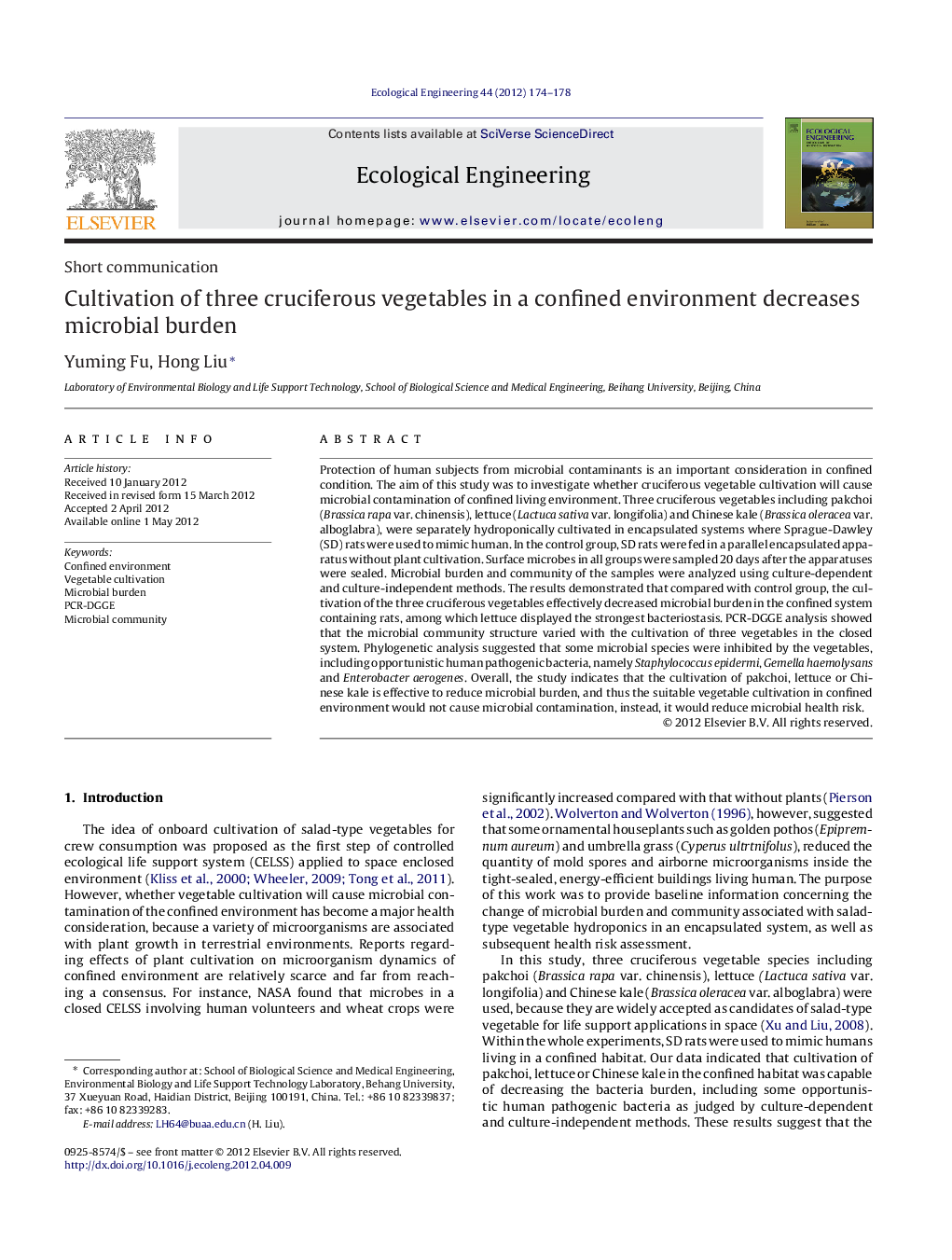| Article ID | Journal | Published Year | Pages | File Type |
|---|---|---|---|---|
| 6302692 | Ecological Engineering | 2012 | 5 Pages |
Abstract
Protection of human subjects from microbial contaminants is an important consideration in confined condition. The aim of this study was to investigate whether cruciferous vegetable cultivation will cause microbial contamination of confined living environment. Three cruciferous vegetables including pakchoi (Brassica rapa var. chinensis), lettuce (Lactuca sativa var. longifolia) and Chinese kale (Brassica oleracea var. alboglabra), were separately hydroponically cultivated in encapsulated systems where Sprague-Dawley (SD) rats were used to mimic human. In the control group, SD rats were fed in a parallel encapsulated apparatus without plant cultivation. Surface microbes in all groups were sampled 20 days after the apparatuses were sealed. Microbial burden and community of the samples were analyzed using culture-dependent and culture-independent methods. The results demonstrated that compared with control group, the cultivation of the three cruciferous vegetables effectively decreased microbial burden in the confined system containing rats, among which lettuce displayed the strongest bacteriostasis. PCR-DGGE analysis showed that the microbial community structure varied with the cultivation of three vegetables in the closed system. Phylogenetic analysis suggested that some microbial species were inhibited by the vegetables, including opportunistic human pathogenic bacteria, namely Staphylococcus epidermi, Gemella haemolysans and Enterobacter aerogenes. Overall, the study indicates that the cultivation of pakchoi, lettuce or Chinese kale is effective to reduce microbial burden, and thus the suitable vegetable cultivation in confined environment would not cause microbial contamination, instead, it would reduce microbial health risk.
Related Topics
Life Sciences
Agricultural and Biological Sciences
Ecology, Evolution, Behavior and Systematics
Authors
Yuming Fu, Hong Liu,
